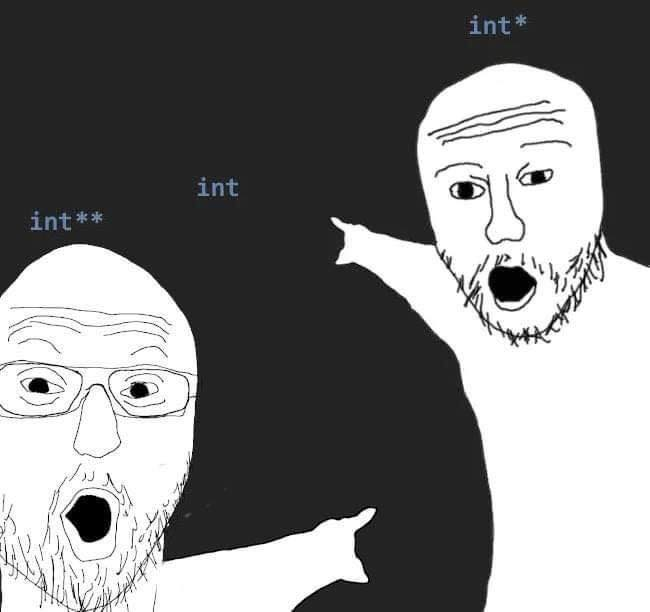I don’t get it
I started using ubuntu 2 years ago and its great. Just disable snaps. It’s like 5 commands (and you have to reinstall Firefox).
You stop snap store from running, disable it from restarting then set apt over snap store as default.
It’s not hard. I did it day 1 of using Linux. Plus there’s guides a plenty on how to do it.
At that point just use PopOS. Why the hell would you use Ubuntu just to disable snaps?
Because snaps aren’t the only feature the distro comes with. It’s widely versatile, commonly used, and this argument isn’t a good one. PopOS is good, so is ubuntu minus the snaps.
If you are using Ubuntu and disabling snaps, might as well use something else. Snaps are basically the selling point of Ubuntu and any other distro based on it will provide a better experience if you don’t want them.
What about all the other pros of ubuntu?
Off the top of my head,
- their power management is better than any other distro for laptops.
- Their compatibility with WiFi drivers is better than many others, granted that’s not exclusive to ubuntu but it is a pro.
- theyre more up to date than debian but stable while actually coming with Wayland support unlike Mint. Timeshift is great tho, good thing it’s compatible with ubuntu.
- their community is much larger than many other distro so support is easier to find.
- it’s just not a bad distro. There’s not a lot of other distros that match its out-of-the-box experience.
Other distros are good. PopOS is good. I chose Ubuntu mostly because it’s solid and stable but also because it has a wide community for help. I’m just getting tired of the narrative that ubuntu is totally crippled by its snaps. This is a linux distro, if I don’t like something I get to change it, which is actually cool. This isn’t windows where I have no control. Also, with snaps gone, I’ve literally never had a problem I haven’t caused. I have the approach of strip out what I don’t want. Arch users install what they do want. At the end of the day, we both are exploiting software we want to use to be productive. If I found myself fighting the os (like Mac or Windows) I’d switch but I don’t so I won’t.
Why did you disable snaps on the first day of using Linux?
That sentence should probably read “on my first day of using Linux outside of a vm on bare metal with an installation I intended to keep”. I use Kali for security work and I used Manjaro once but it killed itself before I knew what I was doing.
Snaps are not very space efficient, I don’t need the same packages installed multiple times. In a desktop use case that’s a lot of repeating packages.
I think you’re gonna have a bad time since that’s essentially what all the newer formats do (flatpak, snap, appimage).
You can just choose not to use it. They still release everything through their regular repositories for now.
FOR NOW
yeah, snaps, that’s the only thing holding Ubuntu back
not dpkg and by extension apt being a flaming dumpster fire that will corrupt the package database if you look at it funny and there being no way out of that other than an OS reinstall
not the fact that there are zero tools for managing dependencies when building a program from source and you’re entirely on your own when it comes to what *-dev packages you need to install
not the fact that Ubuntu is one of only two distros out of the hundreds that are out there where you can’t use the computer while it’s installing updates
not Canonical’s general policy of “hey, this technology seems pretty cool, let’s find out whether it’s good or not by forcing it on all our users and seeing if they complain” (see: miri display server, cinnamon desktop, and of course snaps)
not the fact that there are ADS IN THE GODDAMN TERMINAL
not the fact that it’s a Linux distro that thinks it’s smarter than you and does something other than what you told it to based on what it thinks you meant (see:
apt install firefoxinstalling the snap)no it’s snaps
snaps are the problem
I don’t know what you’re mostly on.
-
Dpkg is nowadays rock solid. I had 300 debians working together and auto updating at the same time, never had an issue.
-
managing dépendances when building from source, apart from Gentoo being built around the emerge management, no other package manager has any clue about source building dependencies.
-
confused about what’s the problem when using 'buntu while it’s updating.
-
Agree with this one. Fuck Canonical
-
same as above.
-
so it’s snap the problem then?
-
admittedly it’s been a couple years since I last used Ubuntu, and it may have gotten better in that time
-
I was talking about the AUR
-
see my first response. I remembered Ubuntu occasionally doing what Windows does and forcing a reboot, then spinning for 10-15m doing god knows what. Glad to hear they’ve fixed that
-
as for the last one I was talking about the fact that Canonical is willing to do that in the first place. It’s not the snap itself, it’s the fact that I told it to install a native package and it decided for me what I wanted. Shit like that is why I left Windows behind. “You don’t really want to set your default browser to something other than Edge, do you?”
Tha aur is cheating, it’s basically a script to install the correct dependancies. It’s also not integrated natively into pacman so it’s not related to the package manager itself.
Ok I understand what you mean for your last point
-
-
Cinnamon Desktop? Cononical? Since when was Linux Mint owned by Canonical?
Did I say Cinnamon I meant Unity
Snap is what finally forced me to explore the vast selection of distros. Mint Linux is working well for me. I do miss Plasma Desktop though.
Love Mint
Wonderfull + You are free to install Plasma on your Mint
I’ve done this, works great.
https://helpdeskgeek.com/linux-tips/how-to-install-kde-plasma-desktop-on-linux-mint/
I’m not a fan of Cinnamon either, but switching is easy.
Why does everyone hate snaps? I mainly just use Ubuntu for work, but snaps seemed to work well enough.
Cause Snap is proprietary and the repo is controlled only by Canonical/Ubuntu. Flatpack on the other hand allows for third parry repos. And then one might even preference a classical install because ironically its snappier - faster - especially on oldee setups
But you can install multiple app stores, right? This is just one. My understanding is that it also adds sandboxing to any snaps you installed.
Snaps have sandboxing but only on Ubuntu I think. Flatpaks have sandboxing too but that should work in every distro.
Snap is not proprietary.
The snapcraft webserver backend is closed source but everything snap adjacent that touches your computer is open source, and you can distribute snaps and install them without using the snap store
They are 1. Slow on launch and on boot. 2. Very opaque and offer little control. 3. They don’t integrate well. 4. Proprietary. 5. Probably most importantly, Canonical has made 0 progress and demonstrated 0 interest in improving issues 1-4.
I recently just switched to Pop! and it’s so crazy how much fun linux is now! I was pulling my hair out at Ubuntu because of things like Snaps, trying to get nvidia to work, and so many weird quirks. (My audio just had a low buzzing noise until I reconfigured Pulse, scaling had to be manually set in a config file, I had to change a few nvidia configs to get my games to play at over 30fps, and no native flatpak integration obviously because of snaps)
But with Pop everything just works! Flatpaks are in the pop shop, the distro had an option with nvidia configured out of the box, it’s been the easiest linux setup I’ve ever had. I need to go deeper into the weeds with Fedora and Arch, but goddamn Pop is going to be my go-to from here on out.
Running this distro on my laptop for its great window manager. Good stuff!
It’s just gnome
Customized gnome with pop tiling manager iirc. It’s a pretty good mobile experience compared to default gnome.
Pop_OS! Is the one I chose to finally move full time to Linux. I have zero regrets. It’s been great
It’s one of the reasons on my next rebuild I’ll be moving off Ubuntu. I always used Ubuntu because it was stable and you can find articles for almost anything. But there’s some great distros out there now and I don’t like Snaps.
I’m waiting for the next Build of POP OS which should be out soon and I’ll hop over to that probably in the new year.
…or you could just use Debian.
…or Mint depending whether they’d rather move up, or down the hierarchy.
What the did with Firefox is a war crime…
BUT, the other day I had to instal DBeaver and using snap was for sure the easiest/fastest way
Debian.
Linux beginner here. Whats snaps?
Snaps is Ubuntu/Canonicals proprietary package format which is mostly considered a worse alternative to flatpak (another package format) with no real advantages on desktops that Canonical is trying to force on users
Snaps are not a proprietary package format.
The backend is proprietary
The webserver that canonical uses to distribute other people’s snaps is, and that’s it. APKs aren’t proprietary just because Google runs the Play store.
If you don’t want to interact with canonical’s servers you can download the snap files from literally anywhere else and install them manually so you don’t have to touch a single line of non open source code.
Even if you do download the snaps from elsewhere you are still locked in with the Canonical repository for updates, with it being basically hard coded and with no alternatives. Even more, snaps are straight up a worst experience then flatpak with all their quirks like the loopback devices and the automatic updates.
Disable automatic updates then.
snap --helpIMO snaps were prematurely pushed but that’s about it - they were a worse experience like two years ago when canonical started pushing them and almost every app had some quirk due to the sandboxing, but they have improved to the point that I literally can’t remember the last time I encountered an issue with the snap version of a program (granted I only really use snaps when something isn’t available as a .deb or there is a conflict)
It’s a package format that bundles all required libraries, that way you don’t run into the issue with program A requiring library version <1.1 and program B requiring library >1.3.
It leads to larger binaries because these dependencies are bundled, but it solves the issue with old/minimally maintained software not working on new OS versions because they depend on an ancient version of libssl or something.
The apt package of KeePassXC would fail repeatedly to recognize my hardware token. The snap package ironically works like a charm.
“I am more like a flatpak guy myself”
sudo apt purge -y snapd && sudo apt install -y gnome-software-plugin-flatpak && flatpak remote-add flathub https://flathub.org/repo/flathub.flatpakrepo
For everything else Fedora is looking good. PopOS has potential.

















